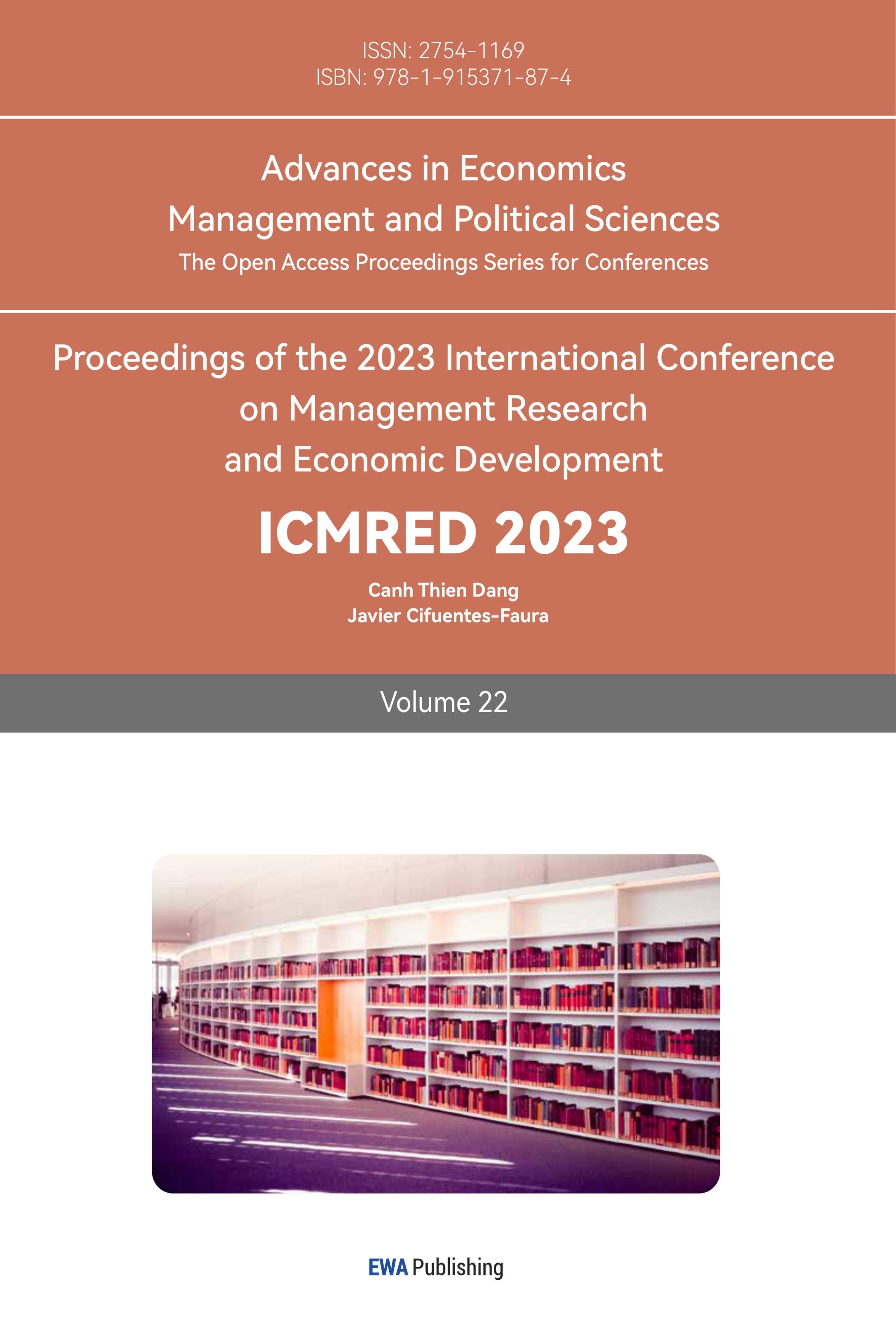References
[1]. Bower, E., (2022). Responding to Crisis in Japan. [online] Csis.org. Available at: <https://www.csis.org/analysis/responding-crisis-japan> [Accessed 29 August 2022].
[2]. KUEPPER, J., (2022). Japan's Lost Decade: A Brief History and Lessons Learned. [online] The Balance. Available at: <https://www.thebalance.com/japan-s-lost-decade-brief-history-and-lessons-1979056> [Accessed 29 August 2022].
[3]. JAMES CHEN. (2009). Plaza accord definition. Investopedia. https://www.investopedia.com/terms/p/plaza-accord.asp.
[4]. Abe, N., (2022). Japan’s Shrinking Economy. [online] Brookings. Available at: <https://www.brookings.edu/opinions/japans-shrinking-economy/> [Accessed 29 August 2022].
[5]. Owen.pham. (2022). The social consequences of Japan's financial crisis in the 1990s. Wondrium Daily. https://www.wondriumdaily.com/the-social-consequences-of-japans-financial-crisis-in-the-1990s/
[6]. Root, A., (2022). Ford and Tesla investors get cold water in the face. Affordability is a problem. https://www.barrons.com/articles/ford-tesla-carmax-used-car-prices-51671725166.
[7]. Yglesias, M., (2022). The real reason Japan's economy keeps stumbling into recession. [online] Vox. Available at: <https://www.vox.com/2015/11/17/9749264/japan-recession-abenomics> [Accessed 29 August 2022].
[8]. John H. Makin. (2019). Japan's lost decade. American Enterprise Institute - AEI. https://www.aei.org/research-products/report/japans-lost-decade-2/.
Cite this article
Zhang,J. (2023). 1990 Japan Economic Crisis. Advances in Economics, Management and Political Sciences,22,88-92.
Data availability
The datasets used and/or analyzed during the current study will be available from the authors upon reasonable request.
Disclaimer/Publisher's Note
The statements, opinions and data contained in all publications are solely those of the individual author(s) and contributor(s) and not of EWA Publishing and/or the editor(s). EWA Publishing and/or the editor(s) disclaim responsibility for any injury to people or property resulting from any ideas, methods, instructions or products referred to in the content.
About volume
Volume title: Proceedings of the 2023 International Conference on Management Research and Economic Development
© 2024 by the author(s). Licensee EWA Publishing, Oxford, UK. This article is an open access article distributed under the terms and
conditions of the Creative Commons Attribution (CC BY) license. Authors who
publish this series agree to the following terms:
1. Authors retain copyright and grant the series right of first publication with the work simultaneously licensed under a Creative Commons
Attribution License that allows others to share the work with an acknowledgment of the work's authorship and initial publication in this
series.
2. Authors are able to enter into separate, additional contractual arrangements for the non-exclusive distribution of the series's published
version of the work (e.g., post it to an institutional repository or publish it in a book), with an acknowledgment of its initial
publication in this series.
3. Authors are permitted and encouraged to post their work online (e.g., in institutional repositories or on their website) prior to and
during the submission process, as it can lead to productive exchanges, as well as earlier and greater citation of published work (See
Open access policy for details).
References
[1]. Bower, E., (2022). Responding to Crisis in Japan. [online] Csis.org. Available at: <https://www.csis.org/analysis/responding-crisis-japan> [Accessed 29 August 2022].
[2]. KUEPPER, J., (2022). Japan's Lost Decade: A Brief History and Lessons Learned. [online] The Balance. Available at: <https://www.thebalance.com/japan-s-lost-decade-brief-history-and-lessons-1979056> [Accessed 29 August 2022].
[3]. JAMES CHEN. (2009). Plaza accord definition. Investopedia. https://www.investopedia.com/terms/p/plaza-accord.asp.
[4]. Abe, N., (2022). Japan’s Shrinking Economy. [online] Brookings. Available at: <https://www.brookings.edu/opinions/japans-shrinking-economy/> [Accessed 29 August 2022].
[5]. Owen.pham. (2022). The social consequences of Japan's financial crisis in the 1990s. Wondrium Daily. https://www.wondriumdaily.com/the-social-consequences-of-japans-financial-crisis-in-the-1990s/
[6]. Root, A., (2022). Ford and Tesla investors get cold water in the face. Affordability is a problem. https://www.barrons.com/articles/ford-tesla-carmax-used-car-prices-51671725166.
[7]. Yglesias, M., (2022). The real reason Japan's economy keeps stumbling into recession. [online] Vox. Available at: <https://www.vox.com/2015/11/17/9749264/japan-recession-abenomics> [Accessed 29 August 2022].
[8]. John H. Makin. (2019). Japan's lost decade. American Enterprise Institute - AEI. https://www.aei.org/research-products/report/japans-lost-decade-2/.









